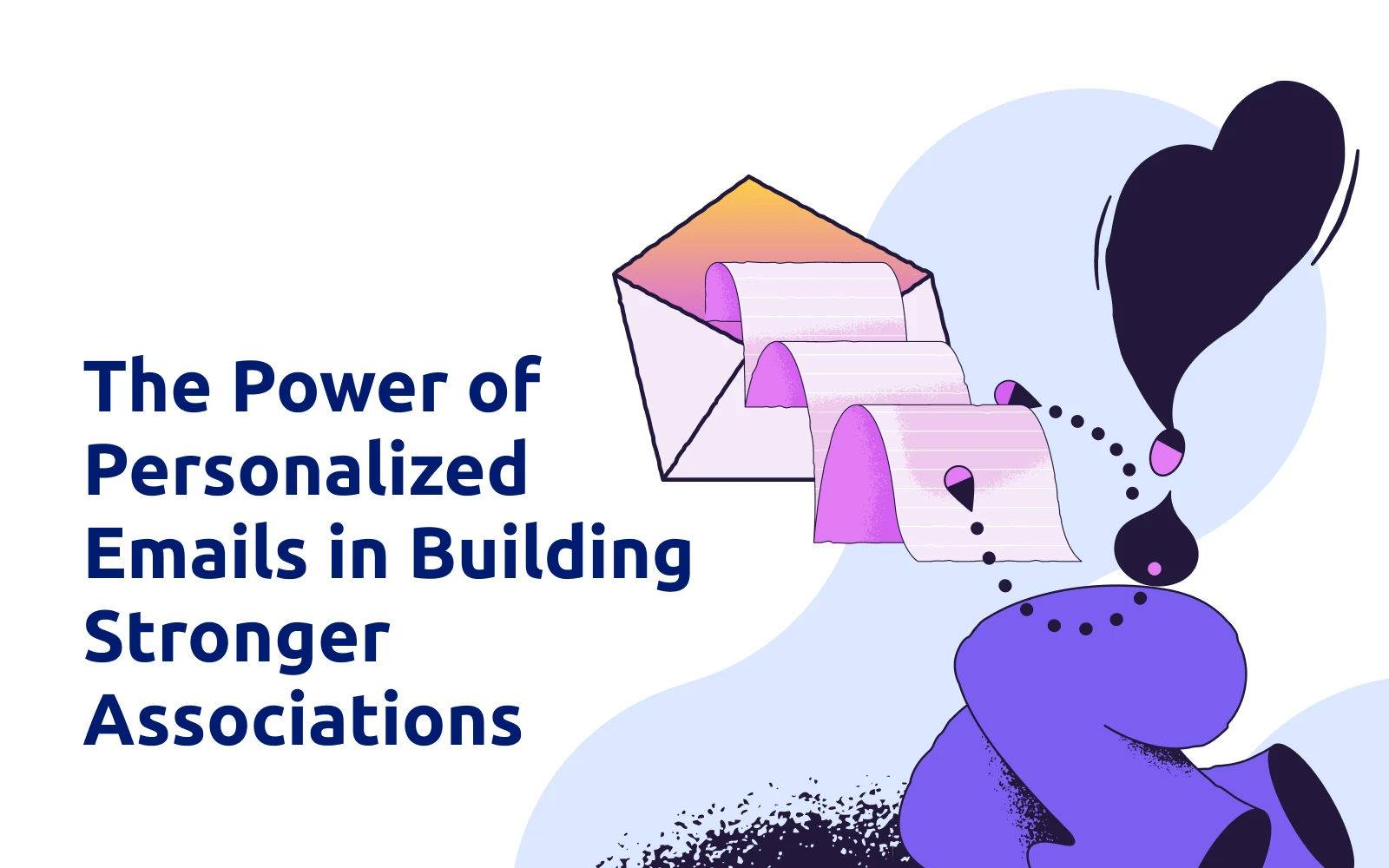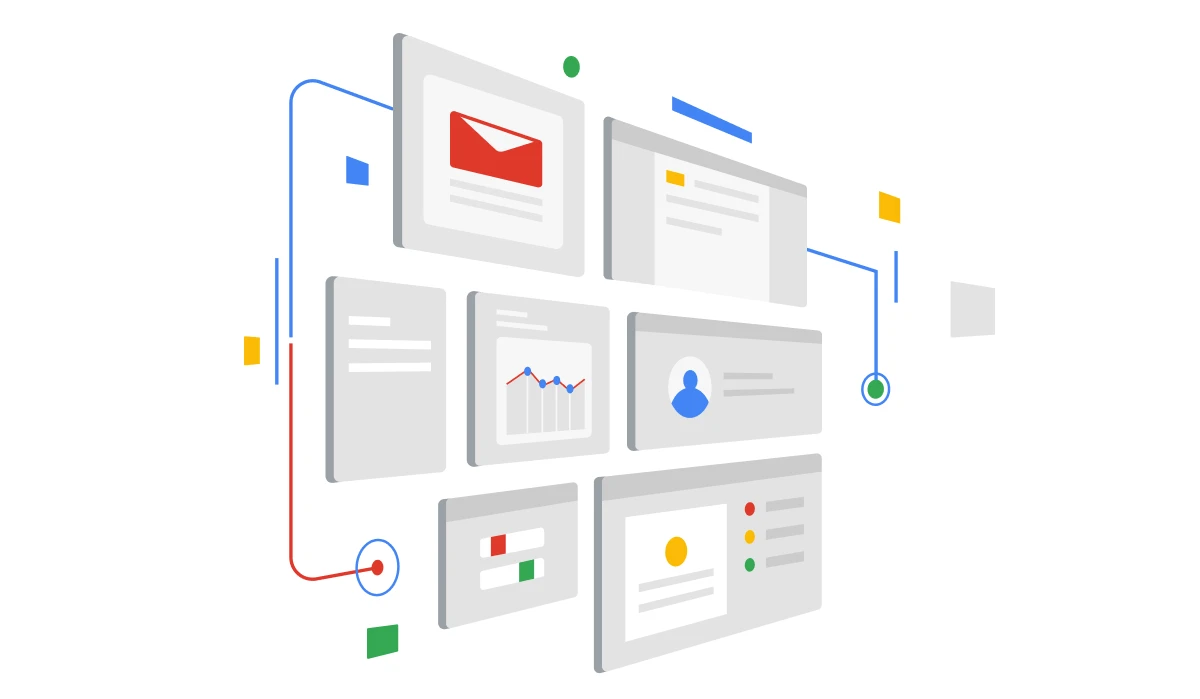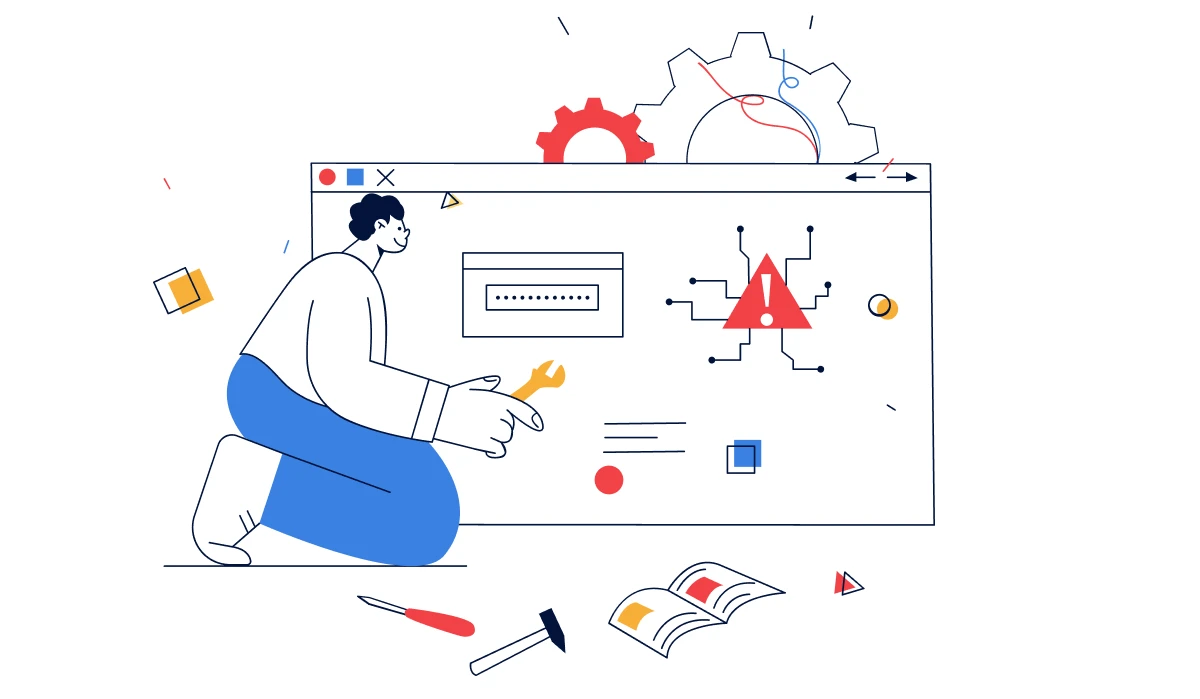
Email marketing has long been a crucial component of successful digital marketing strategies. However, with the increasing number of emails flooding people's inboxes, it has become more challenging for businesses to capture the attention of their target audience.
In this article, we will explore the power of personalized emails in building stronger associations with customers and how businesses can leverage this strategy to drive better results.
Introduction
In today's fast-paced digital world, personalization has become the key to effectively engaging with customers and creating meaningful connections.
Personalized emails, in particular, have emerged as a powerful tool for businesses to communicate directly with their audience in a more tailored and relevant manner. Personalization is the best way to stand out and create a message that is more effective in bringing your conversions.
Understanding Personalized Emails
Personalized emails refer to the practice of customizing email content based on individual preferences, behaviors, and demographic data.
Instead of sending generic emails to a broad audience, businesses can segment their subscribers and deliver messages that resonate with each recipient on a personal level. This might include things like adding a company name in the email body, adding the first and last name, or tailoring the content of the email itself to resonate with the person that will be receiving it.
For example, if you are writing an email to a marketing director, you will need to touch on the needs and problems that this person may face. Adversely, if we are talking to C-suite executives, what they might find useful will be different, and the way in which they communicate might also be more nuanced.
Benefits of Personalized Emails
Increased Open Rates

One of the significant advantages of personalized emails is the higher open rates they tend to achieve.
When recipients see their names or other personal details in the subject line or the body of the email, it creates a sense of relevance and catches their attention.
Studies have shown that personalized emails have a significantly higher open rate compared to generic mass emails.
Improved Click-through Rates
Personalized emails also have a positive impact on click-through rates. By tailoring the content to match the recipient's interests, businesses can entice them to take action.
Whether it's directing them to a specific product page, a personalized offer, or a relevant blog post, personalized emails provide a higher chance of converting recipients into engaged visitors.
Enhanced Engagement

Personalization in emails goes beyond just using the recipient's name.
It involves understanding their preferences, purchase history, and browsing behavior to deliver content that is highly relevant and valuable. By providing targeted recommendations and exclusive offers, businesses can nurture stronger relationships with their customers, leading to increased engagement and loyalty.
The key to seeing conversions on your emails is to build enough interest and engagement to get to the desired action. Ultimately, the best emails are those that convert, and although all other metrics help you get an understanding of the things you need to change to see more overall success, your bottom line metric should always be the number of conversions which is a consequence of highly engaging content.
How to Personalize Emails Effectively?
To leverage the power of personalized emails, businesses need to implement effective strategies and utilize appropriate tools. Here are some key methods for personalizing emails:
Segmentation and Targeting
Segmentation plays a vital role in personalization.
By dividing your subscriber list into different groups based on factors such as demographics, past purchases, or engagement levels, you can create highly targeted email campaigns. This allows you to deliver relevant content to specific segments, increasing the chances of engagement and conversions.
Dynamic Content
Dynamic content refers to elements within an email that change based on recipient data. By using dynamic content blocks, businesses can show different product recommendations, images, or text based on the recipient's preferences or behavior. This customization creates a more personalized experience and increases the relevance of the email.
It’s important to note that dynamic capabilities come from having an email marketing solution that allows for it to happen. Generally seen in the form of merge tags, dynamic capabilities have the benefit of being automated and allowing every person receiving your email to feel that it was written specifically for them.
Personalized Subject Lines

The subject line is the first thing recipients see when they receive an email. Crafting personalized subject lines that grab attention and spark curiosity can significantly improve open rates. By using the recipient's name, referencing their recent activity, or including personalized offers, businesses can create a sense of urgency and relevance.
Tools and Technologies for Personalized Email Marketing
To implement effective personalized email campaigns, businesses can leverage various tools and technologies. Email service providers (ESPs) offer features and functionalities that enable segmentation, dynamic content, and personalization.
Glue Up’s email marketing module gives you the power to completely customize the look and feel of emails, include relevant emails, and use personalization technology to make your emails convert at a much higher rate.
Best Practices for Personalized Email Campaigns
Implementing personalized email campaigns requires a strategic approach. Here are some best practices to consider:
Collecting Relevant Data
To personalize emails effectively, it's essential to collect relevant data from your subscribers. This can include information such as their name, job title, interest, industry, and company name. By leveraging customer relationship management (CRM) systems and integrating them with your ESP, you can gather and utilize valuable data to enhance personalization efforts.
The beauty of a solution such as Glue Up, for example, is that both your email marketing solution and your CRM exist under the same ecosystem. This allows you to organize your contacts based on where they are in your pipeline, and what their interests are and then create smart lists that you can use to send out personalized emails more effectively.
A/B Testing

A/B testing is a valuable technique for optimizing personalized email campaigns. By testing different subject lines, content variations, or call-to-action buttons, businesses can identify what resonates best with their audience. This iterative approach allows for continuous improvement and higher performance.
You might not get it right the first time you send out an email, and that’s okay! The most important thing is that you don’t stop the process of learning and improving. Look at your email’s performance holistically and make small but impactful changes on every part of the touch points of the email.
If your click-through rate is high but your subject line is low, then focus on that, if your open rates are high and people are clicking on your email but you’re not seeing conversions, then make some changes to your CTA. Eventually, you will get a feel for what works and the process of developing a killer email will shorten.
Monitoring and Analyzing Results
To measure the success of personalized email campaigns, it's crucial to monitor and analyze the results. Track metrics such as open rates, click-through rates, conversion rates, and overall engagement.
This data provides insights into what works and what needs improvement, allowing you to refine your strategies for better performance.
Challenges in Personalizing Emails
While personalized emails offer numerous benefits, there are challenges that businesses may face during implementation:
- Data Accuracy and Quality - Personalization relies on accurate and up-to-date customer data. Maintaining data quality and ensuring data privacy and security can be a challenge for businesses. One way that you can avoid this is always checking on the health of your database, and removing contacts that have bounced from your campaigns in the past.
- Content Production and Scalability - Creating personalized content for each email can be time-consuming and resource-intensive. Businesses need to strike a balance between customization and scalability to meet their marketing goals.
Overcoming Challenges and Solutions
To overcome challenges in personalizing emails, businesses can consider the following solutions:
- Data Hygiene and Maintenance - Implement data cleansing processes and regular data audits to ensure data accuracy and quality. Use double opt-ins and preference centers to collect reliable data directly from customers.
- Automation and Personalization Platforms - Utilize automation and personalization platforms that integrate with your ESP. These platforms can streamline content creation, segmentation, and dynamic content insertion, making personalization more efficient and scalable.
- AI Content Generating Tools - You can try using AI tools such as chatGPT, but make sure that the content generated is relevant and will resonate with your target audience.
The Future of Personalized Email Marketing
Personalized email marketing is expected to evolve further in the future.
With advancements in artificial intelligence and machine learning, businesses will be able to leverage predictive analytics and real-time data to deliver even more personalized experiences.
The integration of personalized emails with other marketing channels, such as social media and chatbots, will also play a significant role in enhancing customer engagement and driving conversions.
Conclusion
In conclusion, personalized emails have the power to build stronger associations with customers by delivering relevant, targeted content. By implementing effective personalization strategies, businesses can increase open rates, improve click-through rates, and enhance overall engagement.
However, overcoming challenges in data management and content production is crucial for successful implementation. As technology continues to advance, the future of personalized email marketing holds even more exciting possibilities for businesses to create meaningful connections with their audience.
If you’re ready to upgrade your email marketing capabilities with a solution that understands the needs of you and your members, be sure to discover Glue Up’s all-in-one membership management software. You don’t need tens of tools to achieve your mission, you just need the right one that is specially designed to guide your success.



